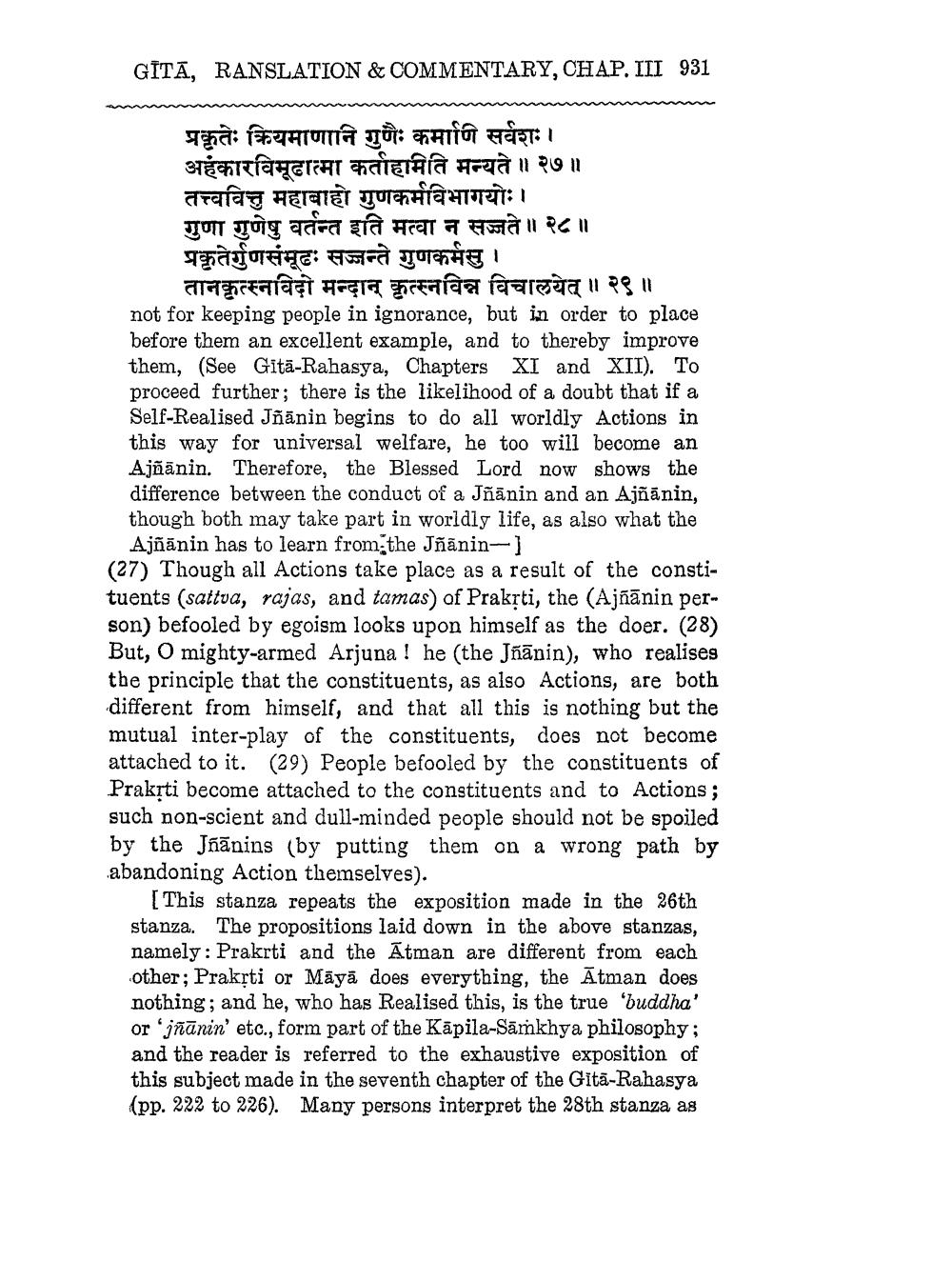________________
GĪTĀ, RANSLATION & COMMENTARY, CHAP. III 931
प्रकृतेः क्रियमाणानि गुणैः काणि सर्वशः। अहंकारविमूढात्मा कर्ताहामति मन्यते ॥ २७॥ तत्त्ववित्तु महाबाहो गुणकर्मविभागयोः। TUTT TŪg aara sa Aral a Hol RC 11 प्रकृतेर्गुणसंमूढः सज्जन्ते गुणकर्मसु ।
तानकृत्स्नविदो मन्दान् कृत्स्नविन्न विचालयेत् ॥ २९॥ not for keeping people in ignorance, but in order to place before them an excellent example, and to thereby improve them, (See Gitā-Rahasya, Chapters XI and XII). To proceed further; there is the likelihood of a doubt that if a Self-Realised Jñanin begins to do all worldly Actions in this way for universal welfare, he too will become an Ajñānin. Therefore, the Blessed Lord now shows the difference between the conduct of a Jñānin and an Ajñānin, though both may take part in worldly life, as also what the
Ajñānin has to learn from the Jñānin(27) Though all Actions take place as a result of the constituents (sattua, rajas, and tamas) of Prakrti, the (Ajñānin person) befooled by egoism looks upon himself as the doer. (28) But, О mighty-armed Arjuna ! he (the Jñānin), who realises the principle that the constituents, as also Actions, are both different from himself, and that all this is nothing but the mutual inter-play of the constituents, does not become attached to it. (29) People befooled by the constituents of Prakrti become attached to the constituents and to Actions ; such non-scient and dull-minded people should not be spoiled by the Jhānins (by putting them on a wrong path by abandoning Action themselves).
[This stanza repeats the exposition made in the 26th stanza. The propositions laid down in the above stanzas, namely: Prakrti and the Atman are different from each other; Praksti or Māyā does everything, the Ātman does nothing; and he, who has Realised this, is the true 'buddha' or 'jñānin' etc., form part of the Kāpila-Sāmkhya philosophy; and the reader is referred to the exhaustive exposition of this subject made in the seventh chapter of the Gitā-Rahasya (pp. 222 to 226). Many persons interpret the 28th stanza as




